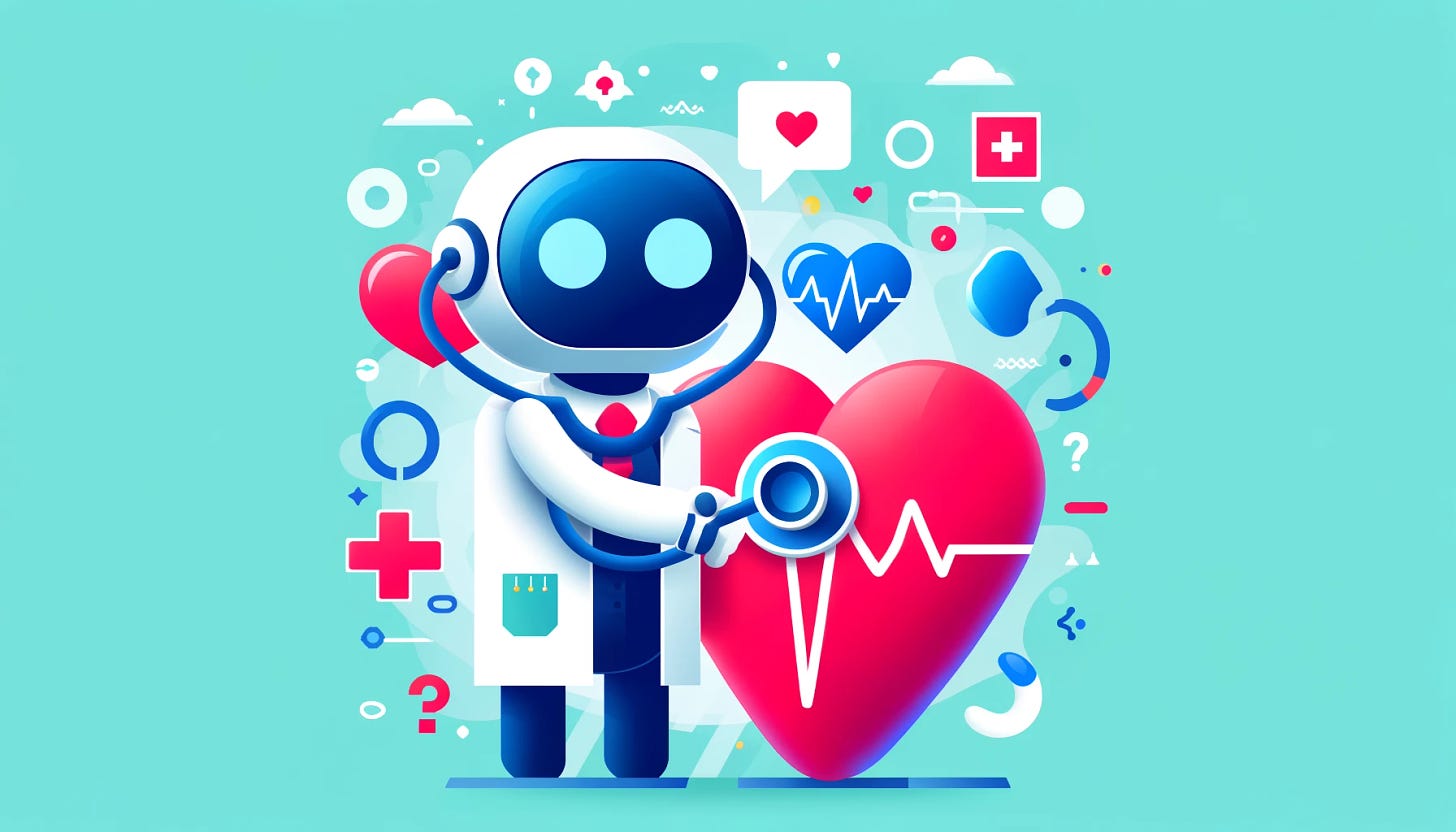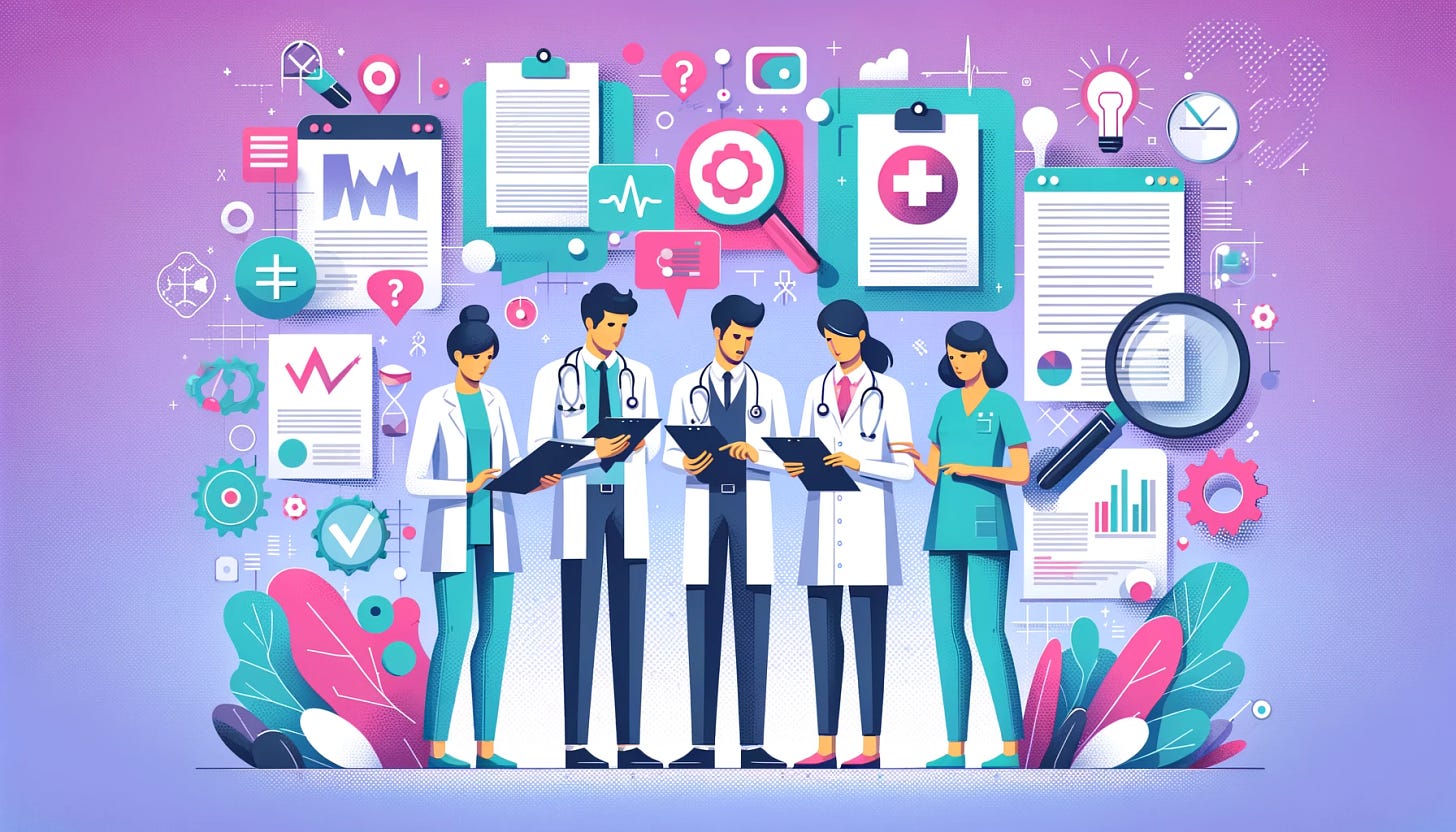Cardiology to Data Analysis and Medical Research—Exploring Frontiers

AI Passes Cardiology Test with Flying Colors… Sort Of
In a groundbreaking study, ChatGPT, OpenAI’s sophisticated AI, was put to the test on an interventional cardiology exam typically designed for human fellows. The results? ChatGPT passed, showing promise in its ability to process complex medical data. However, its human counterparts still outperformed it, scoring higher on average.
The AI’s performance varied across different test formats, excelling at 76.7% in the multiple-choice format with required justifications (MC-J), compared to a lesser 61.7% without them (MC-NJ). It showed aptitude in image-based questions, answering five out of six correctly, but stumbled with video-based content.
While ChatGPT proved adept at handling tougher queries, its accuracy dipped when retested, highlighting the need for further fine-tuning. Despite these mixed results, OpenAI continues to refine its AI, with the latest GPT-4 Turbo promising even sharper capabilities in various intellectual tasks.
Keep an eye on this space: As AI technology evolves, its potential applications in healthcare could revolutionize how we understand and interact with medical expertise.

Tool of the Week Julius AI: Your Gateway to Effortless Data Analysis
Julius AI is revolutionizing the way we approach data analysis, making it accessible even for those with no prior expertise. The platform allows users to easily manipulate and visualize data through a simple conversational interface, distinguishing itself from other AI tools like ChatGPT that focus more on text generation.
Dive into Data
Getting started with Julius AI is a breeze. After signing up on their official website, you can upload various data formats such as CSV and Excel or even connect directly to Google Sheets. Begin analyzing your data by simply typing out natural language commands on the ‘Chat’ page, where Julius AI assists you through the process.
Visualize and Conquer
Ask Julius to generate complex statistical analyses or create intuitive plots like bar charts and line graphs. This makes it easy to derive meaningful insights from your data without diving into complicated software.
Julius AI vs. ChatGPT
Unlike ChatGPT, Julius AI specializes in data analytics, providing specific tools for data visualization and analysis, making it a unique resource for data-driven decision-making.
Affordable AI
Julius AI offers a structured pricing plan that caters to different levels of usage, from basic data analysis needs to extensive organizational requirements. Though there isn’t a free tier, the pricing is competitive, with plans starting at $20/month, making advanced data analysis accessible to a broader audience.
What’s the verdict? Julius AI stands out with its user-friendly platform that simplifies the complex task of data analysis, making it a valuable tool for individuals and businesses alike.

Can You Spot the Bot?
A recent study reveals a startling insight: even seasoned healthcare professionals struggle to distinguish between research abstracts penned by humans and those generated by AI, such as OpenAI’s ChatGPT. According to a survey involving over 100 clinicians, accuracy was surprisingly low, with only 43% able to correctly identify AI-written abstracts.
Blurred Lines in AI in Healthcare
Experienced reviewers did not fare better; in fact, they were less accurate than their less experienced peers. This raises questions about the integration of AI in scientific writing and the necessity for heightened scrutiny regardless of the origin.
Ethical Considerations
Despite the challenges in recognition, a significant majority (72.5%) of participants viewed the use of AI in creating abstracts as ethically acceptable, suggesting an openness to its potential benefits in enhancing research efficiency.
A Call for Skepticism
Dennis Ren of Children’s National Hospital advises a critical approach to all scientific literature, reflecting a broader need for improved appraisal skills as AI becomes more prevalent in clinical research.
What’s next? This study highlights the ongoing evolution of AI in academia and the imperative for educational reforms to address these new challenges.
Check out our other articles!
AI in Cardiology: The AHA’s Guidance on AI’s Role in Cardiology
Ai in Primary Care with Google’s AMIE: The PCP of the Future
AI Solving Medical Error: Why AI is Important in Healthcare
Harnessing AI: Large Language Models Transforming Healthcare Delivery
Can AI Save Science? Healing the Wounds of Academic Publishing










